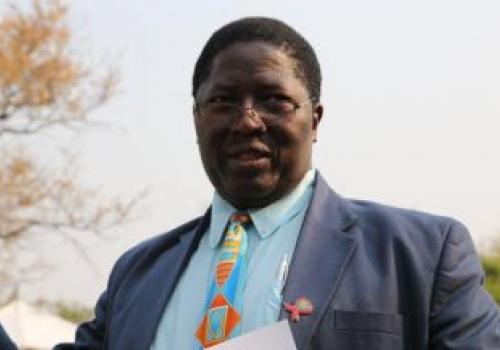A Water Policy Expert at the Southern African Development Community (SADC) Secretariat has restated the importance of inter sectoral coordination between the water and energy sectors in the 16 Member States.
Speaking in an interview with Radio Botswana, during this year’s International World Water Day commemoration, Water Policy Expert in the Water Sector at SADC Secretariat Dr Kenneth Msibi, said “water requires energy and energy requires water, hence the need for the two sectors to collaborate”. He explained that water was required to produce energy and energy was needed for the extraction, treatment, and distribution of water as well as its collection and treatment after use.
Dr. Msibi said that the 2014 World Water Day theme, which is, water and energy, should be seen as an added opportunity in the efforts towards improved, combined, and coordinated water and energy governance and management. World Water Day is an international event which is held every year on 22 March to focus global attention on the importance of water and the need for sustainable management of the resource.
The goal for the 2014 World Water Day theme is to encourage increased awareness among decision-makers, inside and outside the water and energy domains, as well as stakeholders and practitioners about the interlinkages, potential synergies and trade-offs. Furthermore, the goal of this year’s theme is to highlight the need for appropriate responses and regulatory frameworks that account for both water and energy priorities.
Dr. Msibi added that the theme for the this year’s World Water Day should motivate national governments and other stakeholders to collectively address the water-energy nexus, particularly addressing inequities, especially for the majority who are struggling to survive without access to safe drinking water, adequate sanitation, sufficient food and energy services.
Dr. Msibi said governments need to be encouraged to create enabling environments to foster greater coordination between the water and energy domains because integrated approaches and solutions to water-energy issues can achieve greater economic and social impacts.
The growing demand for limited water supplies in the SADC region puts increasing pressure on water intensive energy producers to seek alternative approaches, especially in areas where energy is competing with other major water users such as agriculture, manufacturing, drinking water and sanitation services for cities.
In the SADC region more than 40 per cent of the Member States have the water and energy sectors sitting in one ministry thereby facilitating sectoral linkages.
At the SADC regional level, the revised Protocol on Shared Watercourses and the Southern African vision for water, life and the environment are some of the fundamental frameworks available to ease coordination and integrated planning between the water and energy sectors in the implementation of development programmes.

